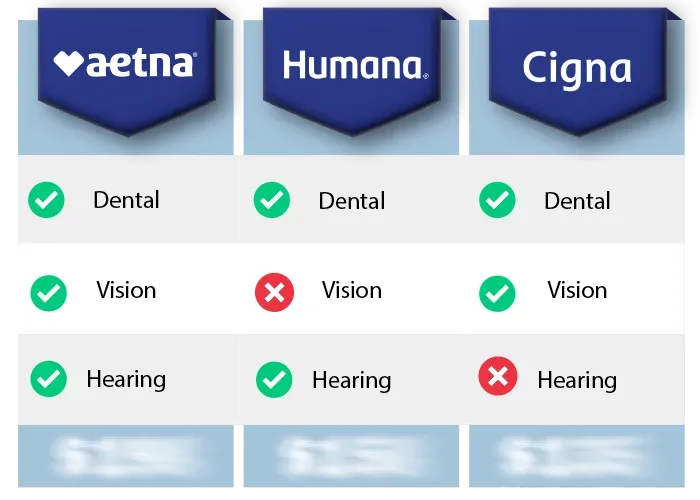
Medicare Info: Navigating the Intricacies of Healthcare for Seniors
Medicare Info: Navigating the Intricacies of Healthcare for Seniors
Introduction
Medicare, established in the mid-1960s, serves as a beacon of hope for countless seniors seeking quality healthcare without the burden of exorbitant costs. Through this initiative, eligible seniors have access to essential medical treatments, hospital stays, and more. Yet, as with any comprehensive program, the landscape of Medicare is vast, and understanding its intricacies can be a challenge. This article aims to simplify the vast world of Medicare, shedding light on its multiple facets for anyone seeking clarity.
What is Medicare?
Medicare is a U.S. federal program designed to provide health insurance for individuals aged 65 and older, certain younger individuals with disabilities, and those with End-Stage Renal Disease (ESRD). Funded by payroll taxes, premiums, and the U.S. Treasury, Medicare offers coverage that can drastically reduce out-of-pocket healthcare expenses for beneficiaries.
Components of Medicare
Part A – Hospital Insurance: This is the cornerstone of Medicare, providing coverage for hospital stays, skilled nursing facility care, and some home health visits. Most beneficiaries don't pay a premium for Part A, as it's covered by their or their spouse's payroll taxes during working years.
Part B – Medical Insurance: It covers services from doctors and other health care providers, outpatient care, home health care, durable medical equipment, and many preventive services. Unlike Part A, Part B usually requires a monthly premium.
Part C – Medicare Advantage Plans: An alternative to Original Medicare, these are private health plans offered by Medicare-approved private insurance companies. They provide all the benefits of Parts A and B and often include extra perks like vision, dental, and hearing aids.
Part D – Prescription Drug Plans: These are stand-alone plans offering prescription drug coverage, functioning alongside your Original Medicare benefits.
Enrollment and Eligibility
The Initial Enrollment Period (IEP) is a seven-month window surrounding your 65th birthday (three months before, the month of, and three months after). If you fail to enroll during this period, you might face late enrollment penalties, unless you qualify for a Special Enrollment Period due to specific life events.
Navigating Costs
One of the common misconceptions is that Medicare is entirely free. Although Part A might be premium-free for many, other parts come with costs. It's essential to understand premiums, deductibles, copayments, and coinsurance to avoid unexpected expenses. Moreover, there are Medigap policies available that can help bridge the coverage gaps.
Why Understanding Medicare is Crucial?
With healthcare costs on the rise, having substantial medical coverage becomes paramount, especially in the golden years. Medicare offers a lifeline, ensuring that seniors aren't buried under medical bills. However, navigating its landscape requires a thorough understanding to maximize its benefits. By grasping the various components of Medicare, one can make informed decisions that cater to individual health needs and financial situations.
Frequently Asked Questions
1. What's the difference between Original Medicare and Medicare Advantage?
Original Medicare encompasses Parts A and B and is managed by the federal government. In contrast, Medicare Advantage (Part C) is offered by private insurance companies approved by Medicare, often providing additional benefits.
2. Is prescription drug coverage automatically included?
No, Part D, which offers prescription drug coverage, is optional and needs to be enrolled in separately unless you choose a Medicare Advantage plan that includes drug coverage.
3. Can I switch plans or coverage options?
Yes, during the Annual Enrollment Period (AEP) – from October 15 to December 7 every year, beneficiaries can make changes to their Medicare coverage.
4. What is a Medigap policy?
Medigap, also known as Medicare Supplement Insurance, is a policy sold by private companies to help cover costs not included in Original Medicare, like deductibles and co-payments.
5. What if I'm still working past 65?
If you or your spouse are still working and have coverage through an employer, you might be able to delay Medicare enrollment without penalties. However, it's essential to consult with the Social Security Administration to determine the best course of action.

Copyright © 2025 Senior Benefits Guide All Rights Reserved.
204 Church St Suite 1A, Boonton NJ 07005
Disclaimer: This website is not affiliated with the Medicare/Medicaid program or any other government entity. The information provided on this website is for informational purposes only. It is not intended to be, nor does it constitute any kind of financial advice. Please seek advice from a qualified professional prior to making any financial decisions based on the information provided. This website acts as an independent digital media & advertising publisher. This webpage is formatted as an advertorial. An advertorial is an advertisement that is written in an editorial news format. PLEASE BE AWARE THAT THIS IS AN ADVERTISEMENT AND NOT AN ACTUAL NEWS ARTICLE, BLOG, OR CONSUMER PROTECTION UPDATE. This website MAY RECEIVE PAID COMPENSATION FOR CLICKS OR SALES PRODUCED FROM THE CONTENT FOUND ON THIS WEBPAGE. This compensation may affect which companies are displayed, the placement of advertisements, and their order of appearance. Any information, discounts, or price quotations listed may not be applicable in your location or if certain requirements are not met. Additionally, our advertisers may have additional qualification requirements.
Our goal is to provide exceptional service. One of our agents may reach out to you to discuss your order, ask for feedback, and/or see if you need any assistance with your products, services, or plans, at the phone number you provided regardless of your do-not-call list status. You may opt-out of further contact at any time by simply telling our customer service team that you would no longer like to be contacted. In the event that our team is unable to reach you by phone, they may send you a text message letting you know that we called. Both our text messages and phone calls may be sent or connected utilizing automated software. Carrier charges may apply. You may opt-out of any future contact via text message by replying anytime with "STOP".
Copyright © 2025 All Rights Reserved.
Find Medicare Advantage Plans in 3 Easy Steps

